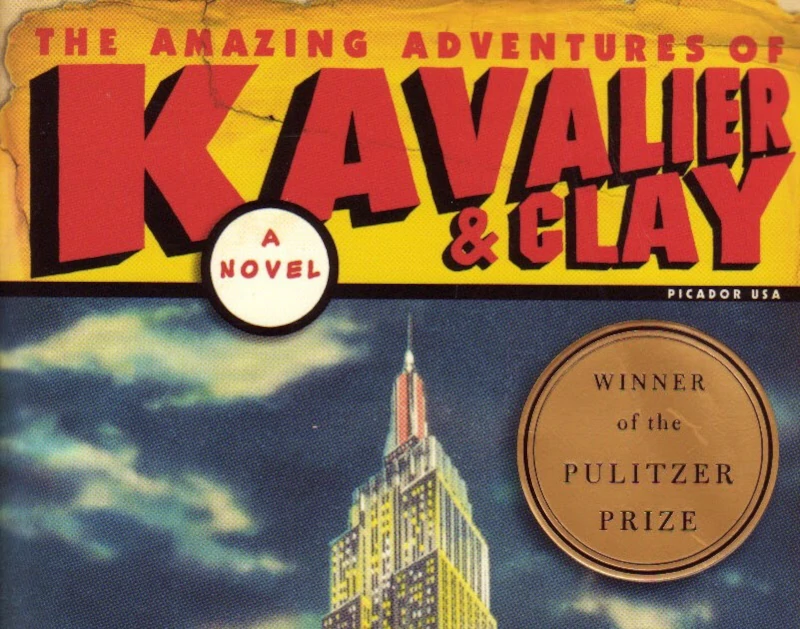
Speculative Fiction & The Pulitzer: Weird Lit is on the Rise
Words By Evan Sheldon
The Pulitzer Prize for fiction is one of the most desired prizes out there. If you’re like me, and you see that golden sticker on a book cover, you think, Wow. Now there’s an author. The prize doesn’t just symbolize a great book or collection of stories, but designates acceptance into an elite realm of literary royalty. That sticker transforms a book into something more; something bigger; something that matters.
But what if you write speculative fiction? If your protagonist is a space wizard or if your setting involves a cave system overrun with nightmarish, glow-in-the-dark goblin toddlers, do you have a shot at the big prize? There was a time when the answer was a definite and resounding NO! But the tide is turning and there is a glimmer of hope for those of us who write weird literature.
Prior to 2001, the Pulitzer was given exclusively to literary fiction. There were the author’s you’d expect: Ernest Hemmingway, William Faulkner, Harper Lee, Alice Walker. Big time literary American authors writing about America. Then, in 2001 and again in 2007 something strange happened, major literary writers added speculative elements to their novels, and they won. Both Michael Chabon’s The Amazing Adventures of Kavalier and Clay and Cormac McCarthy’s The Road contain speculative elements, most notably The Road’s post-apocalyptic setting. These authors were literary authors dabbling with speculative elements. Not quite all the way to pyrokinetic dachshunds, but a solid step.
Then, in 2012, and once again in 2016, we saw two writers nominated who primarily write speculative fiction. Neither Karen Russell nor Kelly Link won the award, but a shift had occurred. Now, it was not beyond the realm of possibility for a speculative author to be nominated. Both writers dance along the line between speculative and literary, and one could argue (and I certainly would—come at me bro!) that these are speculative writers who use literary elements. They didn’t win, but they were close; so close in fact that the Pulitzer board didn’t award a prize at all in 2012.
So, what was the shift? What led this prestigious committee to nominate speculative authors for what is arguably the most sought-after award in American literature? Was it the quality of the writing? Had speculative writing improved so much that Ms. Russell and Ms. Link elevated a whole genre? I don’t think so. While they are undeniably talented, many other speculative writers are as well. Was it the judges? The Pulitzer board itself? Again, probably a no. The board members serve for nine years and then select their successor. This seems like it would prevent change more than expedite it. If it isn’t the writing and it isn’t the judging, what is it?
I think we have to go back and take a look at the criteria for the award. There isn’t an exact definition or criteria on which the Pulitzer Prize is awarded. People use phrases like “standard of excellence” and words like “distinguished” when speaking about the award, but these seem to be more placeholders for a wavering aesthetic. On the Pulitzer Prize website, this information is provided: For distinguished fiction published in book form during the year by an American author, preferably dealing with American life…
The key here is an American author, dealing with American life. Perhaps it isn’t that the award is changing, but rather how we understand our lives as Americans. Perhaps the Pulitzer board understands that America is wild amalgamation of diverse ideas, perspectives, and beliefs. Fiction can be a lens to view the world and to help us understand it new ways. As our understanding of who we all are expands, maybe the stories that represent us necessarily expand as well. Maybe we need authors to help us rethink our past, provide hope in the present, and reimagine our future—speculative or otherwise.
So, the next time you sit down to write the weird story that you can’t get out of your head, be excited. You aren’t alone, and maybe that story about the Mothman that represents your father, will come to represent all our fathers. Don’t write for accolades, but write the world as you see it—odd bits and all—and help expand our understanding of ourselves. If you do that, speculative or literary or some hybrid of both, you will write a something that matters. I’ll read that story and think Wow. Now there’s an author. Keep writing weird. The world is noticing.